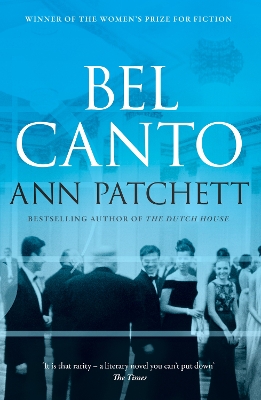Reviewed by gmcgregor on
The hostages are winnowed down over time to the 39 most important men, including the vice president, ambassadors, businessmen, and of course Hokosawa himself (along with his translator) and Roxane Coss. Days go by, then weeks. Gen the translator finds himself very busy indeed as the guests and the soldiers get to know each other inside the mansion. Relationships of all kinds form: one of ringleaders and Hokosawa become chess partners and teach one of the young soldiers, another soldier with a beautiful voice becomes Roxane's student, romantic entanglements form (it turns out not all those soldiers are boys, after all). Always the question looms: how will this all end?
This is the first time I've read Patchett, and she's a gifted writer: her prose is sensitive, deeply felt, lyrical. She has a strong sense of character, and besides the ending, no action the people she creates on the page (and she creates people, complete with their own emotional truth, rather than just "characters") feels false. Even the people she spends less time with feel complete and real. The novel is well-paced and plotted...after the initial high drama of the home invasion, little else happens in terms of events and the action unfolds naturally from the unveiling of personalities and the growing bonds between the people at hand.
What keeps this as a very good book rather than great one, for me, is the very end. The action that two people take is...jarring. Trying to contextualize it in terms of what those two have gone through, you can understand that a rash decision might be made, but it still feels off. And it bugged me a lot, because I'd so loved everything that came before and to close on that sour note didn't feel right. It's 98% of a great book, but it could have been 100% of one and that is frustrating.
Reading updates
- Started reading
- 27 August, 2016: Finished reading
- 27 August, 2016: Reviewed
